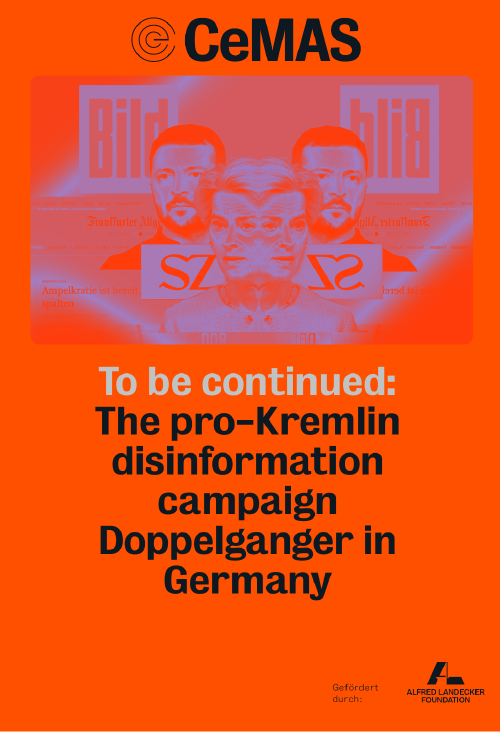The CeMAS report, “To Be Continued: The Pro-Kremlin Disinformation Campaign Doppelganger in Germany,” offers a comprehensive overview of the ongoing Doppelganger activities targeting audiences in Germany.
This covert Russian influence operation has been aimed at manipulating public opinion in Ukraine, the EU, the US, and other countries since the onset of the full-scale Russian invasion of Ukraine in February 2022. The operation is conducted on behalf of and in coordination with the Russian presidential administration. Despite efforts by social media companies, governmental agencies, and researchers to contain it, Doppelganger continued targeting German-language audiences in 2024.
The report analyzes the tactics used to create and disseminate pro-Kremlin content on social media platforms, particularly on X and Facebook. The analysis of the campaign on X highlights how pro-Kremlin content is spread by a network of inauthentic accounts. Although researchers reported these accounts to X and an investigation was already underway under the Digital Services Act (DSA), the platform failed to respond consistently, allowing such content to remain available online up to the editorial deadline of this report.
To examine the strategy behind the influence operation, CeMAS evaluated internal documents from the Russian company Social Design Agency (SDA), one of the operators behind the campaign, using the “Factory of Fakes” dataset. The dataset provides insights into the campaign goals for Germany, such as strengthening the far-right party AfD, promoting fears of the future, and weakening support for Ukraine. The documents also reveal that the SDA systematically exaggerated the impact and reach of their efforts to clients.
The report demonstrates how the campaign’s consistent features can be used to identify new activities and curb them. It discusses possible reasons for the persistent gap between the actual and desired state of campaign containment, despite a wide range of options for action, and offers concrete recommendations for government agencies, social media platforms, researchers, and civil society.
